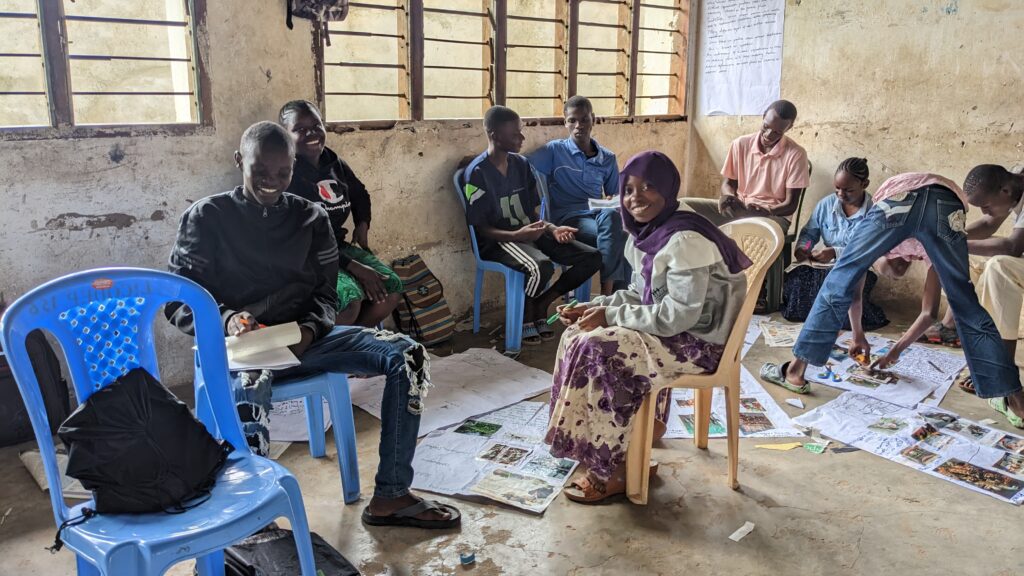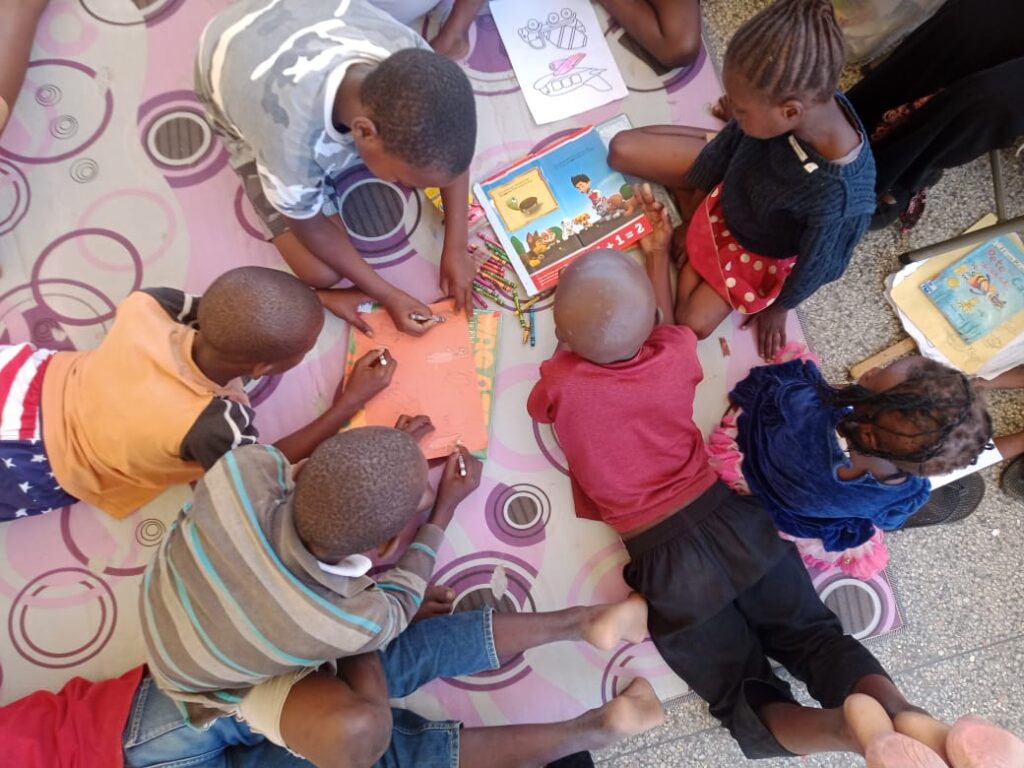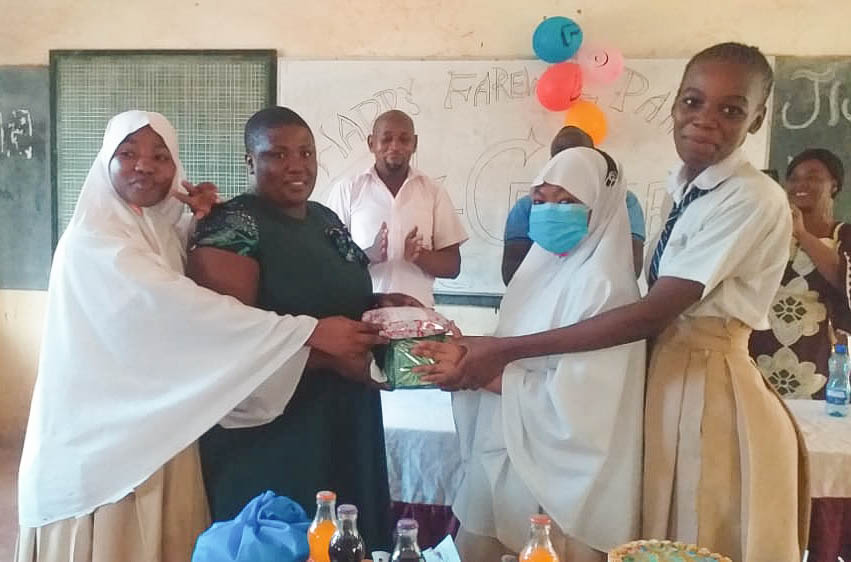
A shared love for the Kiswahili language brought Mwanabiishe Mwamagadi and her mentor, Madam Meme Majiwa together. Md. Majiwa was Mwanabiishe’s Kiswahili teacher at Shika Adabu High School in Likoni. When Mwanabiishe joined Umma University to study Kiswahili and Islamic Religious Education, she naturally decided to go back to the one person she knew who shared her passion for the language.
We spoke to Md. Majiwa and Mwanabiishe briefly about the uniqueness of their mentor-mentee relationship and how they have built a strong foundation that allows each to learn from the other and grow in the process.
—
How did you meet Mwanabiishe?
She was my student. I was her Kiswahili teacher from Form One to Form Four, and I later filled in as their class teacher when their actual class teacher went on maternity leave in Form Four. The girls in her stream were not performing well so I used to encourage them to do better.
How did your friendship with Mwanabiishe develop when she was your student?
We had started reading a Kiswahili literature set-book, “Chozi la Heri’’. It had many characters and I noticed my students were having difficulties with the story so I decided to start giving students nicknames based on characters from the book. Mwanabiishe was ‘Chanda Chema’ – a girl who had faced a lot of struggles in life but had a good heart. I think she related with the character on a personal level and the name stuck even after high school.
As a teacher, I have noticed that for many students, their biggest problem is the breakdown of the family unit. Many come from broken homes and are seeking the love and attention that they ideally would have received at home. Every time you encourage them, it motivates them. That was how we became close with Mwanabiishe.
When Mwanabiishe joined university, did she come to you for advice about her studies?
To be honest, I didn’t know that Mwanabiishe had chosen to become a Kiswahili teacher until she called me saying, “Madam, I’m going to be a teacher and I want to do exactly what you did for us in high school.”
It made me feel good to know that I was a positive influence in her life. These days we talk a lot about her studies. As a student of Kiswahili, it’s not easy to find resources online, so she would call me at least every week to ask how to get certain books or where to find specific information.
Recently, Mwanabiishe asked you to be her official mentor as part of Hatua’s Tertiary Mentoring program. Are there any ways being a mentor has been beneficial to you?
Definitely. Even before becoming a mentor officially through Hatua, I had four other students studying Kiswahili who I’ve been mentoring. As a mentor, you help your mentee pursue their dreams, and that creates benefits for you because it makes you feel like your life has value. This helps me feel excited about my work. It’s also wonderful to have another person in my life who cares and is concerned about my well-being.
Professionally, I once presented the mentoring resources Hatua shared with me to an interview panel. They were so impressed and kept asking questions to learn more about how I mentor youth.
Finally, what do you think makes a great mentor-mentee relationship?
To be a great mentor, one has to have admirable qualities that your mentee can aspire to. Professionalism is important too, to build and maintain your mentee’s respect for you. While we are close with Mwanabiishe, there is still a level of respect between us that is very important. Ultimately, one must give it their all, not with the goal of benefiting, but with the goal of uplifting another person. You must find time for your mentee, and let them know you are there for them.
—
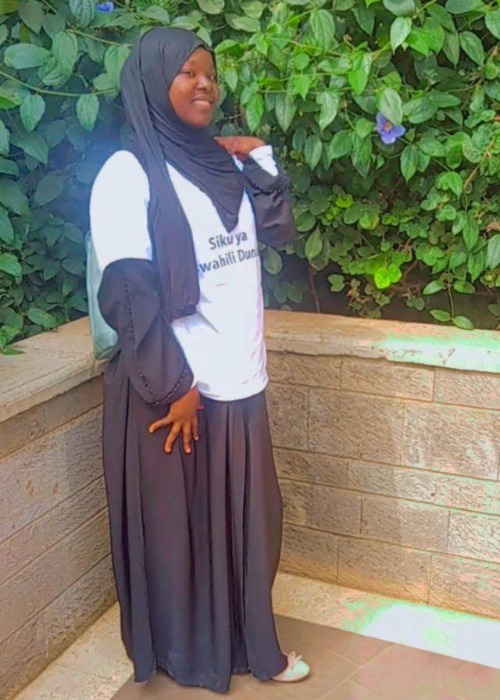
What first inspired you to view Md. Majiwa as your role model?
I’ve always loved Kiswahili since primary school. When I started high school, Md. Majiwa became my Kiswahili teacher in Form One and the class teacher in Form Four. What I immediately liked about her was that her classes were always interesting. You could never be bored in her class. She always wants to make sure that her students aren’t just entertained, but more importantly, that they understand. She is also the person who gave me my nickname, Chanda Chema.
How did Md. Majiwa become your Hatua mentor?
When Anita, Hatua’s Tertiary Mentoring Coordinator, talked with me about finding a mentor, I told her I already had an informal mentor who I reached out to often for advice and help with my studies. Anita was enthusiastic to invite Madam Majiwa to be my Hatua mentor and Md. Majiwa agreed. Her advice has guided me a lot, in fact, it was Md. Majiwa who encouraged me not to pursue Kiswahili alone, but to combine it with another subject like Islamic Religious Education which has fewer teachers in Kenya and is therefore very marketable.
How else has Md. Majiwa’s mentorship guided you?
Her encouragement has helped me feel more confident in my abilities. Last year, I started a Kiswahili club together with my classmates at the university after being challenged by one of our lecturers to champion Kiswahili speaking on campus. We noticed that even though it is a national language, most people perceive you to be uneducated if you started speaking it in an office. At first, getting official approval through the school was challenging and took a long time, but we stuck with it and were successful. I’m now the assistant chairperson of our Kiswahili Club. We have grown to 135 members. Together we visit high schools to educate students about the language. We do this by creating plays based on Kiswahili set-books and staging them in schools. I really love teaching. I think this is thanks to my mentor. When I go back home I like to volunteer to tutor students who need help with their studies.
Tell us about how you ended up on TV for World Kiswahili Language Day?
The first-ever celebration of World Kiswahili Day was in 2021. We were still newly formed so we marked the day simply by going to a nearby school to talk about Kiswahili. This year, we initially wanted to organize an event on campus, but we were informed that it wouldn’t be possible as it was so close to the university’s graduation and funds would not be available. Instead, the school’s administration asked us to find out where national celebrations would be held and they gave us a bus to take us there. We found out that it would be held at the National Museums of Kenya, and we wrote a letter to the Dean requesting permission to attend. The Dean also asked for approval from UNESCO in Kenya and that was how we joined the celebrations.
The rest is history. During the event, I was interviewed by a national media house about Kiswahili and mentioned the role Ms. Majiwa played, and still continues to play, in my career. Click here to view the clip.
Finally, what do you think is the secret ingredient that has made your relationship with your mentor unique?
I admire the way she teaches. She is able to encourage her students and help them pass exams. As a future teacher, I want to become like her and make sure that my students understand the material and pass their exams. We meet often whenever I’m back home, and sometimes she will allow me to teach one of her high school classes so that I can polish up my teaching skills. Our mentor-mentee relationship isn’t just limited to studies, I feel comfortable going to her for advice about life. By being there for me and always giving me good advice Md. Majiwa is helping me achieve my dreams.
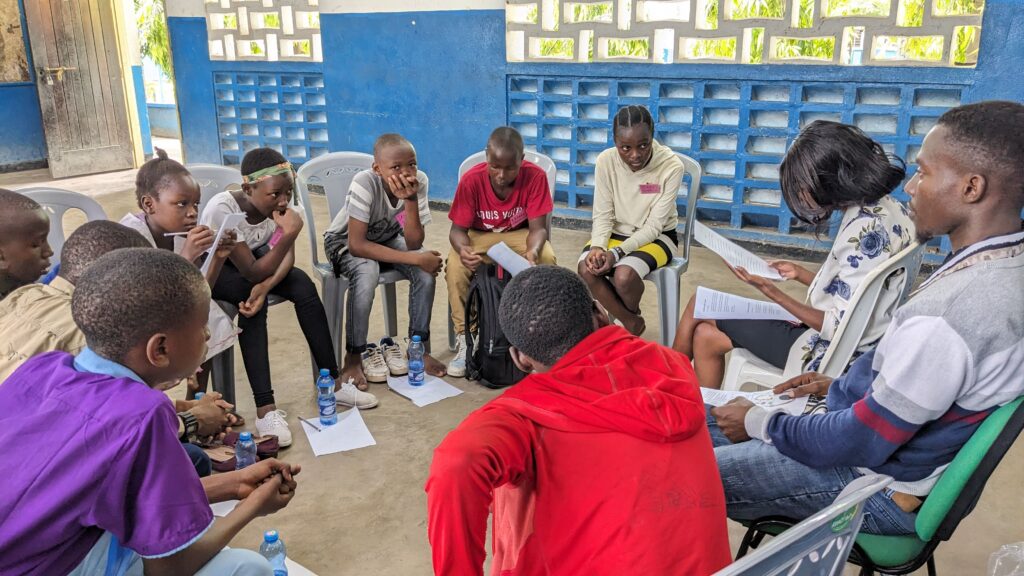
 Read More
Read More